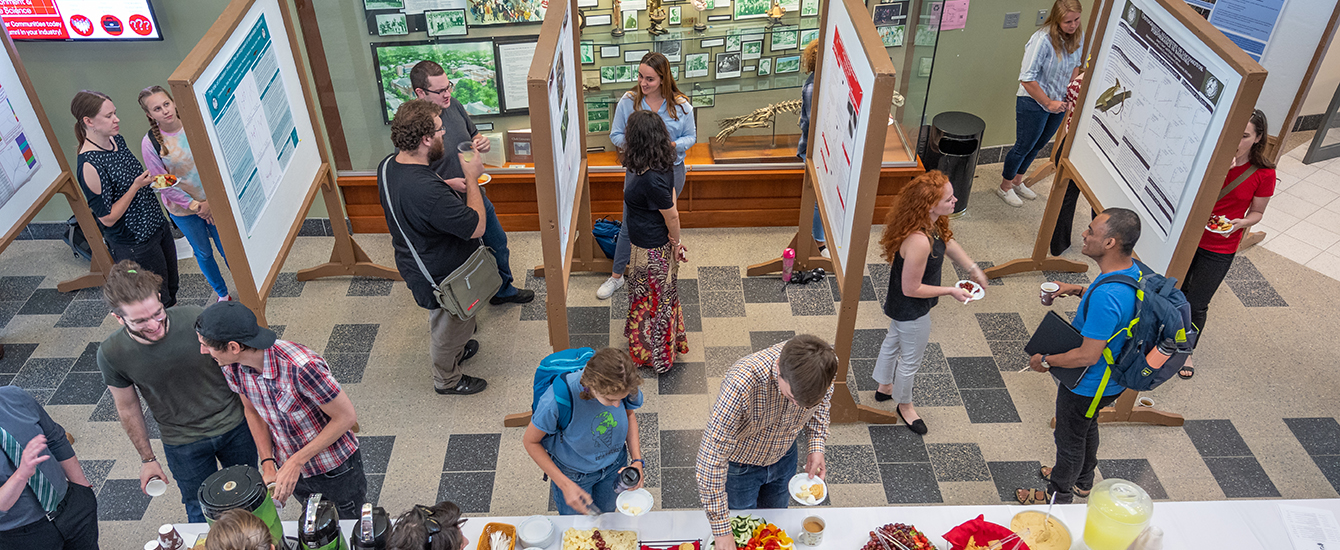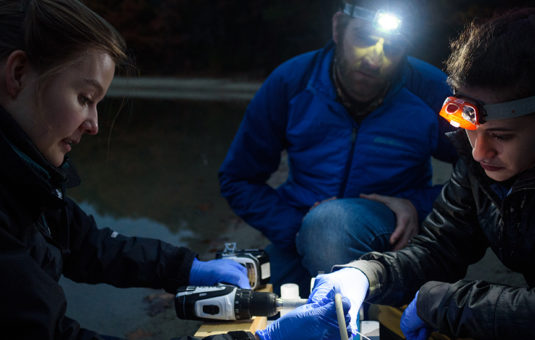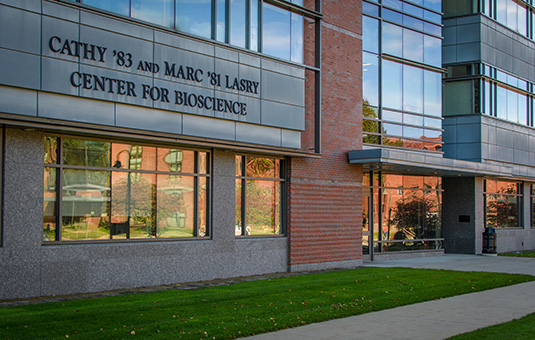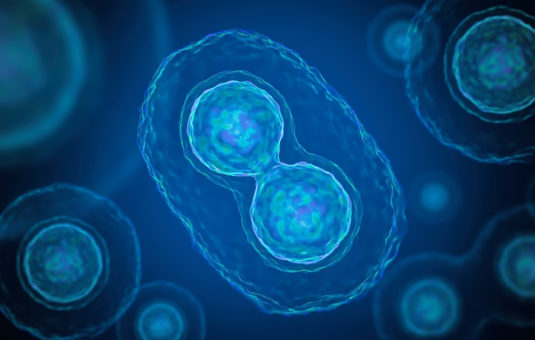Why apply to Clark Biology’s doctoral program?
With a breadth of research areas, Clark’s biology doctoral program provides opportunities and flexibility to pursue research that benefits our understanding of the world within a connected community of scholars. Our research areas include molecular and cell biology, and ecology and evolution.
The program’s intimate size allows graduate students to collaborate, build relationships with and receive mentoring from world-class faculty. Close ties across the sciences, including with those enrolled in our biochemistry and molecular biology and chemistry doctoral programs, exposes students to a range of ideas and research outside their interest areas. Graduate students are guaranteed tuition remission and teaching assistantships for five years.
Our close-knit, curious community
The biology doctoral program seeks students with strong scientific curiosity, prior independent research experience and the ability to persevere.
Graduate students are integral to collaboration on research with faculty members in their labs and with fellow graduate students and undergraduates. These opportunities allow students to benefit from our faculty’s expertise while gaining experience mentoring and teaching. The close-knit community of students in biology, biochemistry and molecular biology, and chemistry builds collaboration across disciplines both in the lab and in the field, which has led to exciting research.




